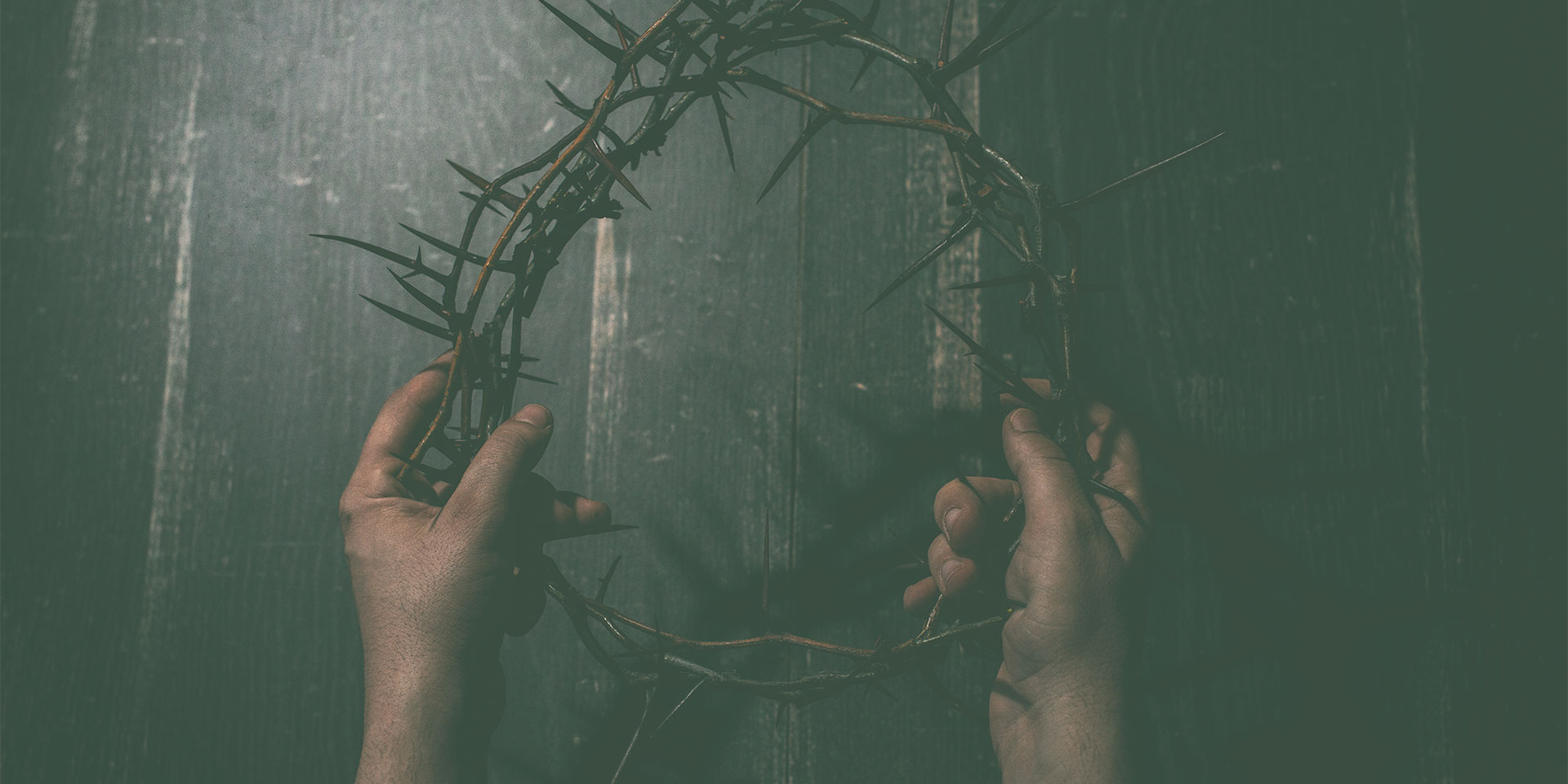One in seven Christians is a victim of persecution worldwide and one in sixteen Christians dies every day for their faith, according to a report published by the Open Doors organisation, revealing that Christian persecution has reached the highest level in the last three decades.
Before they were transferred from prison to the Chongjin Susong camp in North Korea, where they were never heard from again, two Christian families prayed silently on the prison floor. To the question of a prisoner, who wanted to know if they were not afraid of the consequences of this brave act, one of the mothers answered that they were not afraid, because “Jesus looks over us.”
At a time when the persecution of Christians is, at best, a marginal concern, and Western churches focus on domestic issues rather than those the church faces globally, Christians who are subject to violence cling to the trust that God sees the treatment they are subjected to and that they are honoured to suffer for Him.
The persecution of Christians has reached an all-time high
Hundreds of millions of Christians suffer severe forms of persecution, according to the “World Index of Christian Persecution” released on January 19, 2022, by the Open Doors organisation.
Globally, 360 million Christians suffer a high level of persecution and discrimination because of their faith, says the report, highlighting an increase of 20 million in the number of persecuted Christians. In addition to the 50 countries on the list of the most persecuting countries (in which 312 million Christians live), another five have recorded high scores.
In total, 76 countries were identified as countries with extreme, very high, or high levels of persecution of Christians. The year 2021 was the second consecutive year in which every country on the organisation’s watchlist was categorised as having a “very high” or “extreme” degree of persecution. In 8 of the top 10 states in the ranking of persecuting states, the majority religion is Islam.
One in seven Christians is persecuted and discriminated against worldwide—1 in 5 Christians in Africa, 2 in 5 Christians in Asia, and 1 in 12 Christians in America suffer from at least a “high” level of persecution and discrimination.
In 2021, 5,898 Christians were killed for their faith (24% more than the previous year, with 79% of these murders recorded in Nigeria and 11% in Pakistan). The number of Christians arrested for their faith increased by 69% (from 2,813 to 4,765 cases), 90% of the arrests being reported in India, Pakistan, and China.
The number of kidnappings increased by 124%, with Nigeria being the country that holds the record for kidnapping Christians (69% of all cases globally), followed by Pakistan, with 26% of cases. The authors of the report warn that the figures do not accurately reflect reality and that many cases of violence remain unnoticed and unreported. Data on violence or sexual harassment of Christians is even more difficult to obtain and consequently much underestimated (3,147 cases), this being a taboo subject.
More than 5,500 churches and other Christian buildings were attacked or desecrated in 2021, up 14% from the previous year. Hundreds of churches have been closed in recent years in Burkina Faso, Mali, and Niger, and in 2021 470 more churches were closed in Nigeria.
The country where it is most dangerous to be a Christian is Afghanistan, according to the Open Doors report. After holding the top position in the ranking of persecuting countries for 20 years, North Korea, the country with the longest history of persecution of Christians, moved to second place, although the persecution of Christians intensified here in 2021. Somalia ranks third on the list of the 50 countries extremely hostile to Christianity, followed by Libya, Yemen, Eritrea, Nigeria, Pakistan, Iran, India, and Saudi Arabia.
Afghanistan, the country where it is the riskiest to be a Christian
Christians in Afghanistan “need a miracle,” David Curry, president of Open Doors USA, said in August 2021, explaining that the takeover of power by the Taliban has had devastating effects not only on the country but also on the entire region destabilised by Islamic extremists. It is not known how many Christians are left in the country, but estimates vary from 2,000 to over 10,000 people, in a country with 38 million inhabitants (90% of whom are Sunni Muslims, and 9.7% are Shia Muslims).
Christians are isolated and keep the secret of their religious affiliation as best they can in a country where they did not enjoy much tolerance under the previous government either, says Luke, head of the Afghan House Church Network, in a podcast of the United States Commission on International Religious Freedom (USCIRF).
Once the Taliban returned to power, their plans to eradicate Christianity from the country became very apparent, Luke says. Moreover, Christians are rejected by their family members, betrayed, or cast out of the family because of fear—an extremely brutal punishment for someone living in a community-centred society.
Christian men are at very high risk of being killed if discovered, and women and girls are at high risk of being raped, trafficked, or married to Taliban fighters, the Open Doors report shows. An important part of the Christian population fled to rural areas or took refuge in neighbouring countries, which are also hostile to Christians.
Yet, there are Christians who believe that their mission is to stay in Afghanistan because God has a plan for them and the Christian church in Afghanistan, so they want to be there, regardless of the level of persecution to which they will be subject, says William Stark, South Asia regional manager for the International Christian Concern (ICC).
The persecution of Christians and the different forms that intolerance takes
North Korea reached record highs of Christian persecution last year. The number of Christians arrested increased with the adoption of a new law against “reactionary thinking.” Being arrested means being sent to re-education camps, where conditions are brutal enough to drastically reduce the chances of surviving detention.
Tens of thousands of Christians are in North Korean camps, and the number of Christians in the country approximates 400,000 people, according to the estimate of Open Doors. The North Korean government considers Christians the most dangerous class, and parents are sometimes forced to hide their faith even from their children. Even the possession of a Bible is a crime punishable by sending its possessor to the camp, often with their entire family.
The treatment to which women are submitted in these camps includes rape, forced nudity, and forced abortion, while men are subjected to physical violence and various forms of ill-treatment, according to a UN report.
China, which ranks 17th on the list of countries hostile to Christians, is exerting increasing pressure on Christians, using the “most oppressive and sophisticated” surveillance system in the world. President Xi Jinping knows he can’t eliminate Christians, so he is gradually strangling the Christian faith with technology, says David Curry, president of Open Doors.
Official churches are subject to strict regulations, regarding even the content of sermons, so many Christians choose to be part of underground, illegal churches. Even the fact that a Christian might attend church ‘too often’ is a good reason to be fired or put on the no-fly list, Curry says. Also, the law forbids children under 18 to go to church, so parents are forced to give them religious education at home or sneak them to Bible studies, risking their jobs and even the future of the children, who could be prevented from going to the desired school and getting a job in the future.
Chinese Christians belonging to underground churches are being sent to secret brainwashing camps, a 2021 report by Radio Free Asia shows. A Christian committed for 10 months in one such centre for the “facilitation of transformation,” writing under the pseudonym Li Yuese, described the conditions of detention, confessing that after only a week in the centre death became more attractive than the prospect of remaining in detention.
Nigeria, ranked 7th on the Open Doors list, was labelled the country with the most violence against Christians, with the most Christians being killed for their faith, even though almost half of the population is Christian.
Christians in Nigeria, especially those in the north of the country, have been killed, kidnapped, and dispossessed of their properties for several decades. Fulani Islamist radicals are responsible for most of the murders in recent times. At least 60,000 Christians have been killed in Nigeria in the last two decades. In the first 200 days of 2021 alone, it is estimated that 3,462 Christians were killed in Nigeria: 17 per day.
In Somalia, which ranks third on the list of persecuting states, even the suspicion that a person has converted to Christianity puts their life in danger. If someone is found to own a Bible or other Christian material, their assassination takes place with the blessing of the family and community. It is not the government that kills most Christians. These murders are most often committed by the very members of the person’s family, or by the jihadist terrorist group al-Shabaab.
There are no Christian churches in Somalia. Conversion to Christianity and evangelism are prohibited by law, and Christians must take several precautions to meet in small groups. Under these conditions, it is difficult to assess the number of Christians in the African country—it probably amounts to a only few hundred.
Somalian Christians are mostly Muslim converts, a choice considered a betrayal of one’s family and community, and punished, depending on the case, with harassment, intimidation, disinheritance, or death, and in the case of women, with rape, public humiliation, seizure, kidnapping, forced marriage, and, as a last resort, with death.
“I did not choose Him, but He chose me.” Testimonies of persecuted Christians
Nala (pseudonym) first heard about Jesus through online videos shared by Christian Somalis living abroad. She decided to contact some Christians on Facebook, eager to learn more about their religion.
After a while, she asked to be baptised and secretly attended meetings with some believers in her country. Nala knew that she had to hide her faith from her family, but something about her behaviour drew the family’s suspicion that the young woman might have taken the path of apostasy, so she was set up. She was urgently called home under the pretext that her mother was dying, and there she was beaten, deprived of her mobile phone, and locked in the house, being subjected to rituals by which her mind was supposed to be purified of any heresy.
In the end, she was promised to a sheikh who already had two wives but Nala managed to run away from home shortly before the wedding and her friends helped her flee the country. Her life is in danger, but Nala does not regret her decision: “Jesus had changed me. I realised that I didn’t choose Him, but He chose me. I didn’t go out looking for Him, but He found me. Previously I didn’t have happiness, but now I have joy… I know that until I came to know Jesus, I knew nothing at all.”
Amadou, a Christian from Cameroon, says he prays that God will convert the hearts of his persecutors. This is not a singular prayer, says Olivia Boyd, editor of the Open Doors prayer app. This app regularly sends out specific prayer requests from Christian leaders and missionaries in regions where Christians are being hunted down. Boyd says she is overwhelmed by the love the persecuted church shows for its persecutors—more than for justice, persecuted Christians pray for the salvation of their enemies and for themselves to be empowered to forgive their persecutors.
Bae (not her real name) and her husband were sentenced to hard labour in a village they are not allowed to leave after North Korean authorities discovered the family had a Bible. They work in the fields, have difficult work quotas, and barely get enough food to stay alive. However, Bae has a joy that no one can take away from her: at night, her house becomes the centre where a handful of brave Christians meet and worship.
The woman knows the taste of worship in freedom—she managed to escape in the past to China, where she was sheltered in a house of the Open Doors organisation, experiencing worship and fellowship in a way unimaginable in her country. In the end, however, Bae decided that she would not stay in that safe place: she returned home with the medicine and food she received, taking with her, as a priceless gift, the Bible, eager to share all these treasures with the Christians in the underground church.
Robert Kenna of Open Doors USA says he spoke with an elderly Christian woman who managed to escape from North Korea. The woman had spent several years in a camp together with her husband because they had tried to escape the country. She testified that Psalm 23 gave her a lot of comfort while she was in detention, during which she lost her husband, who was murdered because he refused to give up his faith.
Asked to recite this psalm, the woman raised her hands, and tears began to run down her face. Hearing the voice of someone who had suffered so much reciting those familiar verses was a truly unique experience, says Kenna, noting that the Bible still held the same meaning and power for that woman as it did during her years in prison.
These people are not superheroes, says Kenna, but they have met Jesus. Although they knew how great the price would be if they followed Him, they decided “He is worth it all.”
Are there practical ways to help persecuted Christians?
However impressed we may be at any given time by the experience of Christians who do not enjoy religious freedom, the reality is that the media, governments, and individual believers focus very little on the violence and injustice suffered by persecuted Christians. These crimes against humanity are met with too much silence, says Jonathan Henry Sacks, former chief rabbi of the United Hebrew Congregations of the Commonwealth, declaring himself dismayed by the lack of protests that such atrocities would normally generate.
The passivity with which many of us react to the persecution of Christians everywhere comes from the feeling that we are powerless to bring about any major change, says journalist Neal Samudre, exploring how we can get actively involved. Becoming informed is the first step we have to take, says Samudre, explaining that you cannot be part of a solution as long as the data of the problem is not clear to you.
In order to remain dedicated to this cause, even if changes happen very slowly, it is necessary to know the problems faced by persecuted Christians. Many Christians know very little about their persecuted brothers and sisters in other parts of the world. To avoid becoming insensitive, we need to keep up with the news about the persecution of Christians by following regularly-updated data, perhaps even subscribing to sites containing news on this subject.
Persistent prayer is an effective way of getting involved in the unfolding of events over which we have no control, because it reaches where we cannot reach and changes things that leave us powerless, Samudre says.
You should not feel guilty because, while many Christians are persecuted, you enjoy freedom, says the journalist, explaining that guilt paralyses any initiative and, eventually, directs attention to us rather than to the victims of persecution. If we live in a country where we can worship freely, this should be used to help others who do not enjoy the same privileges.
Christians can use their gifts and abilities to help the cause of persecuted Christians. They can do that by writing letters of encouragement (there are organisations, such as Martyrs for Christ, that maintain correspondence with persecuted Christians and say that the impact of such letters is significant, assuring those who suffer of the fact that they are not alone), raising the awareness of their churches about the needs of Christians affected by violence, and donating money to organisations that help persecuted Christians.
Open Doors, for example, supports 60,000 North Korean Christians with food, Bibles, training, and other forms of aid through its workers who work secretly—and at great risk—in China.
Consistently praying for Christians who suffer because of their faith and offering them practical help presents a good opportunity to ask ourselves what we would choose if our Christianity were transferred to spaces where discipleship is paid for in blood. It also gives us the opportunity to honestly answer a question that can be used as a good test for the authenticity of our faith: “Are the things we live for worth the price paid by Christ’s death?”
Carmen Lăiu is an editor of Signs of the Times Romania and ST Network magazines.




















